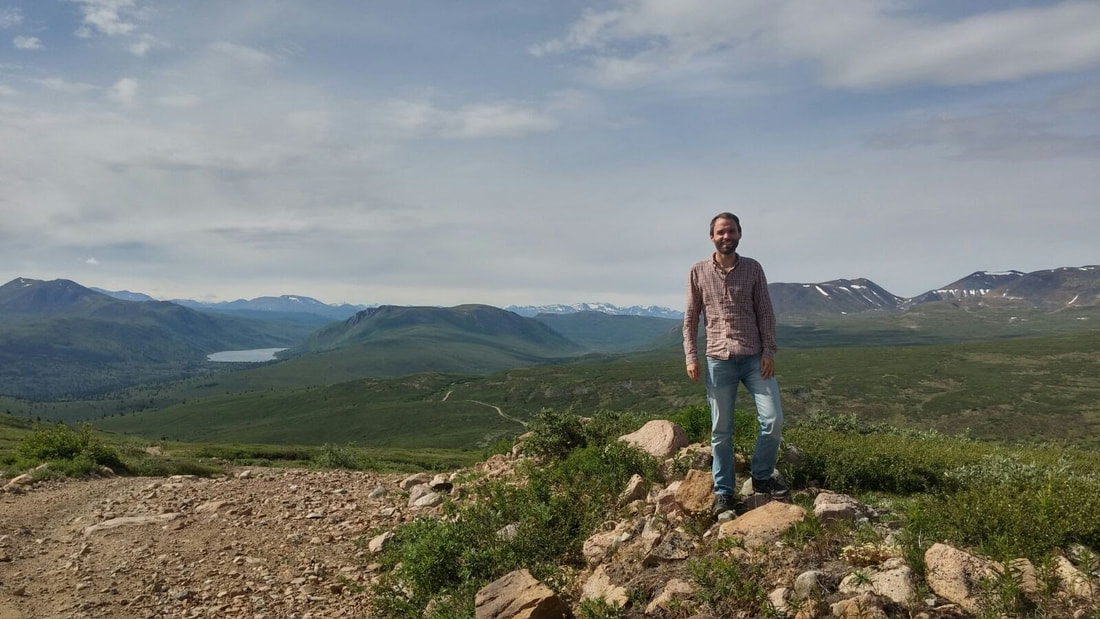As ecohydrology aims for a better understanding of the relationship between ecological systems and the hydrological cycle, ecohydrological research is inherently interdisciplinary work. Therefore, I see great opportunity for terrestrial ecohydrology in the framework of Critical Zone Science. To me, this approach seems to be an outstanding way to include the knowledge and methods of various Earth system sciences as a way of improving our expertise of how water is stored and routed in the subsurface and released either back into the atmosphere via evapotranspiration or recharging streams and groundwater. Therefore, ecohydrology means collaborating, communicating and coordinating across our individual scientific comfort zones as a way of gaining new insights.
What are your undergraduate and graduate degrees in?
I obtained by Bachelor’s degree in Geoecology at the University of Bayreuth, Germany followed by a year abroad at the University of Iceland, Reykjavik as an Erasmus student (European exchange program) to take classes in the environmental science program. I earned a Master’s degree in BioGeosciences from the University Koblenz-Landau, Germany and then I completed a PhD in Hydrology at the University of Freiburg, Germany.
How did you arrive at working in/thinking about ecohydrology?
During my undergraduate studies, I spent my summers working in an engineering office for fluvial ecosystem restoration where I explored firsthand the ways in which geomorphological and ecological features of a river interact. I subsequently learned about countless examples of ecological and hydrological feedbacks during my interdisciplinary undergraduate studies. My Master’s thesis project, which examined diversity effects on tree water use at an experimental plantation in the tropics, ignited my interest for terrestrial ecohydrology. Ever since, I have been motivated to obtain a better understanding of soil – plant interactions in the water cycle. I was lucky to learn about stable isotopes of water during my PhD studies, which is a great tool for exploring how water moves in the subsurface and trees.
What do you see as an important emerging area of ecohydrology?
From my very biased experience over the last years, I see that much effort is being placed on the development and understanding of isotope techniques. The methodological progress of isotope analysis has enabled larger sample numbers, higher sampling frequencies, and a generally broader application of stable isotopes of water. For example, if you compare recently published isotope studies tackling ecohydrological questions with studies from a decade ago, you will probably recognize distinct sampling designs – simply because such sampling strategies are far more feasible nowadays. However, we still have to know when and where to sample to increase the cost-benefit of our isotope approaches. As with most hydrological research, ecohydrologists also struggle with the scaling issue. Thus, I think that experimental work combining deuterium labeled water with hydrogeophysics or remote sensing to bridge the scales could be an answer to our current limitations.
Do you have a favorite ecohydrology paper? Describe/explain.
One of my favorite papers is “Partitioning of soil water among canopy trees in a seasonally dry tropical forest” by Meinzer et al. (1999) simply because it was the first paper that I read which used stable isotopes to study root water uptake. As a Master’s student, I was jealous of the researchers’ extensive isotope tracer data set taken many years earlier at a nearby site. While I was studying plant water use with much more limited (hydrometric) information about water, I knew it would be valuable to include isotope data – not knowing I would be part of that isotope ecohydrology community just a few years later.
What do you do for fun (apart from ecohydrology)?
I like to play soccer and ultimate frisbee and I enjoy exploring the world with my family – if possible, on hikes and by bike.

 RSS Feed
RSS Feed